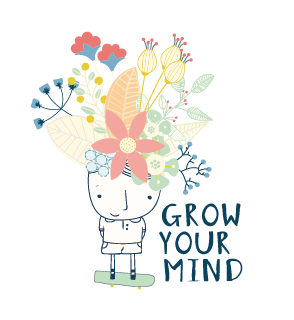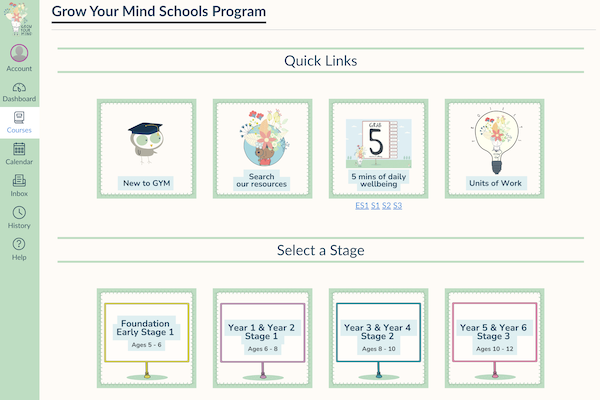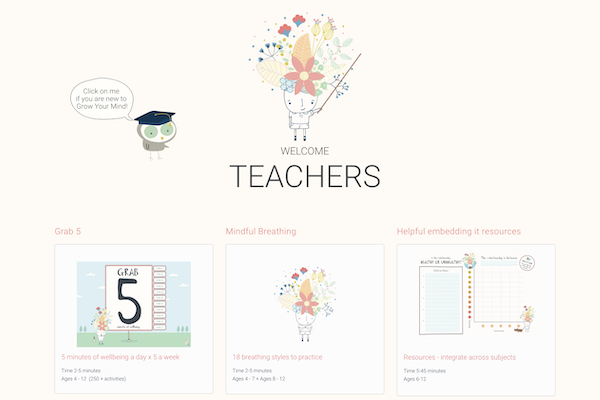Focus strengths: Respect, Empathy and Confidence.
Star of the show: The Sensitive Octopus (aka the insular cortex)

In this episode the 12 year old hosts zoom in on boundaries, knowing them and setting them. Boundaries are simply what we define as ok and what is not ok. Easy enough definition but a huge struggle for many of us to identify and stick to.
It can be deeply uncomfortable for us to say no. And I am speaking directly to adults with that statement! And now apply it to playground dramas, poor decision making, unsafe choices that kids + teenagers might make and you may be able to see our motivations for spotlighting the importance of boundary setting.

So how do you teach kids to know their boundaries and recognise when they are being crossed? Paying attention to what you are feeling and to bodily sensations are a good place to start. It’s why we made the Sensitive Octopus this week’s star of the show.

Each episode a different part of the brain is placed in the spotlight in order to showcase how helpful it can be. In the case of our octopus, also known as the insular cortex, here is an excerpt from the episode that explains their starring role:
“ I’m the star of the show this week because I notice sensations like a racing heart, a queasy feeling in your stomach, heat rising and tingling in your fingers, all of which could be a sign that a boundary is being crossed.I know it can feel uncomfortable but how else would you know if a boundary was being crossed if I didn’t alert you to the feelings in your body? The problem is, sometimes you ignore me. Even when you feel uncomfortable you go ahead and put up with someone being unkind or something that doesn’t feel right.”

We want kids to be aware of their feelings and to feel confident to be able to negotiate, say no and speak up when something feels wrong. And we want them to apply their boundaries to kindness. At Grow Your Mind we encourage children and adults to have a benefit mindset. This means we are inviting kids to come to school and look for opportunities to help others. However, we also encourage this mindset to be partnered with a healthy dose of knowing your boundaries and capacity to help. As Dr Brené Brown says: compassion minus boundaries is not compassion.
This episode was inspired by the tremendous work and research carried out by Brown. She has this remarkable way of sharing data through storytelling in an authentic and whole hearted way. For example, Brown remarks that one of the biggest findings from her research that shocked her was seeing that the most compassionate people she interviewed had a consistent thing in common: they had boundaries and were able to set and stick to them.
If we want compassionate kids that have skills in empathy, we need to ensure they know how to say no. This takes confidence, hence it being one of the character strengths we spotlight in this episode. Kids will need to learn to flex their confidence muscle because as we have stated sticking to a boundary can feel terrifying.

They will need confidence in themselves that it will be ok if others disapprove and perhaps have confidence that if a friendship is worth it and true, it will survive the awkwardness. As it says in this week’s song ‘Boundaries’:
“It can make you nervous
make you scared
Like you’re being chased by a grizzly bear
But it gets easier every time
To show your friends your invisible line
You’ve got yours and your friends do too
listen respectfully
watch what they do
It’s not easy I guarantee but
good friends will let you speak up”

We also call on empathy to make a strong appearance, remembering that empathy is feeling with someone not for someone. We want to encourage kids to also look for signs in others that they feel uncomfortable and to stop a potential problem in its tracks by backing off. The hosts suggest that the character strength respect is also needed. For two reasons.1. The need to respect other people’s boundaries that may be different from your own and 2. The need to respect yourself by being clear on your own boundaries and not betraying them in order to win approval of others.
The next episode to follow is about assuming the best, it is called: Generous Assumptions. Essentially when we assume people are trying their best we can prevent unnecessary arguments and generally feel better about relationships and life! However there is a reason the Invisible Line episode comes first. We cannot assume the best in others if we don’t have clear boundaries. According to Dr Brené Brown, boundaries are finding a way to be generous towards others while continuing to stay true to yourself.
So how do we support kids to be confident, to take a stance and state their invisible line (boundary)? We suggest a few strategies.
Start thinking about what things are ok and not ok for you
Invite kids to draw a circle. Outside of the circle is what is not ok for them. Inside is what they feel ok about. We have this activity in our podcast journals, but you could easily do it on a blank piece of paper.

Remind students that everyone has different boundaries
This might help the kids you care for have a greater appreciation for looking for signs in others and in listening to their own inner voice. Essentially it is a lesson on celebrating and respecting each other’s differences. We love a venn diagram to drum in this message. Again you will find these in our podcast journals or use your own paper!

Make a mantra.
If you are familiar with Grow Your Mind you will know we encourage kids to practice positive affirmations. Invite kids to tell themselves a particular statement when they next need to say no. An example might be: I can be brave. Or: It’s ok to say no, I am loved and I belong. Use ours or come up with your own.

Our pretend friend Brené Brown says to herself, “Choose discomfort over resentment.” Essentially you want the affirmation you choose and/or your students choose to remind ourselves that we are making a choice that is important for our wellbeing, even if it’s not easy.
Practice makes progress.
Practice your affirmations, practice sentences where you say no. Learn the lyrics to our song ‘Boundaries’ Listen and re-listen to our episode on this called: The Invisible Line. Print, share and complete the student reflection journals. Come up with role plays where students have to act out saying no by coming up with a variety of ways to say it.
Practice makes progress, not perfect. As adults who have studied this and who teach this we are still working on saying no. On turning down potentially fantastic opportunities because we are at risk of burnout ourselves. Of feeling safe to say no to taking on a particular project within our own small team because we simply do not have the capacity. It is not easy. But we are committed to moving away from resentment and instead live a life that is rich in love and generosity. Now let’s get on with the work and privilege of teaching kids to do the same.
Find out more by visiting us here



